There are now 12 UNESCO World Heritage Sites in the Netherlands. That’s right — this tiny country is filled to the brim with exciting and unique cultural sights!
Here is the full list of Dutch sites, ranked in the order they joined the world-renowned UNESCO list.
- 🦴 1. The prehistoric gem, Schokland island
- 🤺 2. The Water Defence Lines of Amsterdam
- 😍 3. The stunning windmills of Kinderdijk
- 🛠️ 4. The impressive D.F. Wouda steam pumping station
- 📸 5. The charming Beemster polder
- 🏡 6. The architecturally unique Rietveld Schröder house
- 🌊 7. The natural Wadden Sea
- 🇳🇱 8. The famous canals of Amsterdam
- 🤔 9. The interesting Van Nelle factory
- 📚 10. The historical Colonies of Benevolence
- 🗡️ 11. The New Dutch Water Defence Line
- ⭐️ 12. The Eise-Eisinga Planetarium
- 🐚 Bonus: The picture-perfect town and harbour of Willemstad, Curaçao
This post might have affiliate links that help us write the articles you love, at no extra cost to you. Read our statement.
1. The prehistoric gem, Schokland island
Schokland and its surroundings possess a mysterious past as an archaeological monument and former island.
This World Heritage Site lies in the centre of Noordoostpolder and is steeped in cultural history.
It’s home to a sweet old church, a lighthouse keeper’s house, and the Schokland Museum. According to Statistics Netherlands, just five people live there!? 🤔
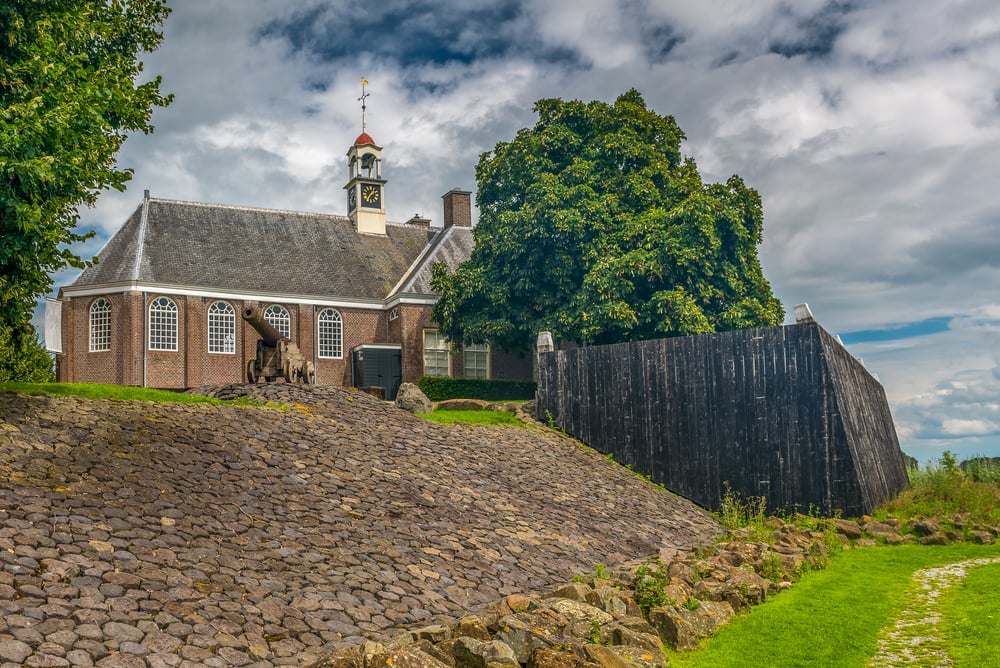
Due to the rising sea levels, residents of Schokland retreated to the three most elevated parts of the land by the 19th century, until a major flood in 1825.
Archaeologists later found a wealth of largely undamaged treasures buried in the ground.
READ MORE | Four sunken villages discovered in Zuiderzee
There is evidence of human habitation going back more than 10,000 years (that’s prehistoric!), and they’ve dug up all sorts of things, from earthenware, tools, and man-made mounds, to the remains of houses and churches — and even entire graves. Eeek!
2. The Water Defence Lines of Amsterdam
Also known as the Stelling van Amsterdam. This monument is a ring of 46 forts stretching more than 135 kilometres around the city.
The line of defence was erected to protect the national stronghold built between 1883 and 1920. 🛡️
As well as the fortifications, the ring consists of an intricate system of dikes, sluices, canals, and inundation polders.
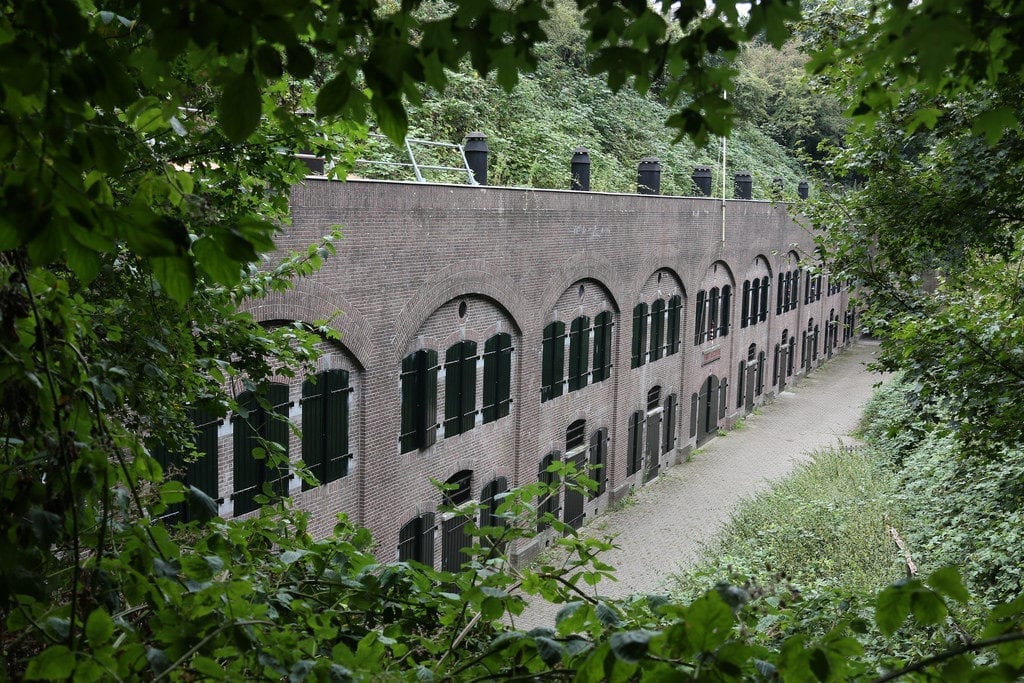
In the Middle Ages, the Dutch created a defence system based on these inundations, referring to its flooding areas.
If people were to attack, the lower parts of the country could be flooded, making the area impassible.
Genius thinking to make use of what you’ve got, Dutchies!
3. The stunning windmills of Kinderdijk
In South Holland, the Windmills of Kinderdijk-Elshout are a charming Dutch mill network on a famous man-made landscape built between 1738 and 1740.
The area is constructed similarly to the Defence Line of Amsterdam, with polders, embankments, and dikes.
Not only is it a gorgeous and uniquely Dutch site to visit, but it also has a complex water management system.
It may not be the most exciting words you’ve ever seen, but this is a vital part of the Netherlands’ history.
The Dutch made a huge contribution to this water-handling technology, and these historic windmills can be seen as a way of paying homage to that (in addition to them being a pretty sight and wildly popular among tourists).
READ MORE | Best windmill site in the Netherlands: Kinderdijk or Zaanse Schans?
It has 19 drainage mills, three pumping stations, two discharge sluices, and two Water Board Assembly Houses, which work for the drainage of the land.
The windmills essentially keep water out of the polder.
4. The impressive D.F. Wouda steam pumping station
Another celebration of technology! They weren’t kidding when they said the Netherlands was the land of water.
Also known as the Woudagemaal Steam Pumping Station, this World Heritage Site is a steam-powered pumping station that pumps excess water out of Friesland.
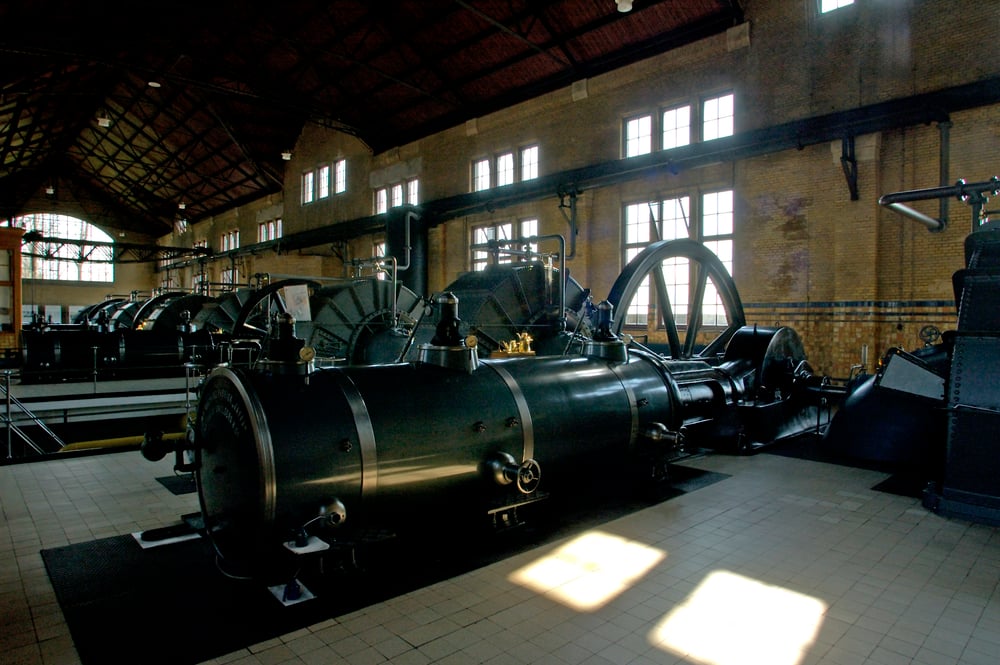
It is the largest station of its kind that is still in use, which is impressive considering it opened in 1920.
It now runs on heavy fuel oil and can pump up to 4,000 cubic metres of water per minute!
Are you an engineering nerd? Then head to the busy seaside town called Lemmer to marvel at this beauty.
READ MORE | Dutch Quirk #124: Not care about the fact that they’re living below sea level
The visitor entrance provides information about the site’s history, an interactive museum experience that kids will love, and regular tours.
5. The charming Beemster polder
The Beemster Polder, a beautiful green expanse in North Holland, has been incredibly well-preserved since the 17th century.
The whole place used to be mostly water.
Now, thanks to ingenious and intricate planning, it’s an agricultural landscape made up of fields, roads, canals, dikes, and settlements.
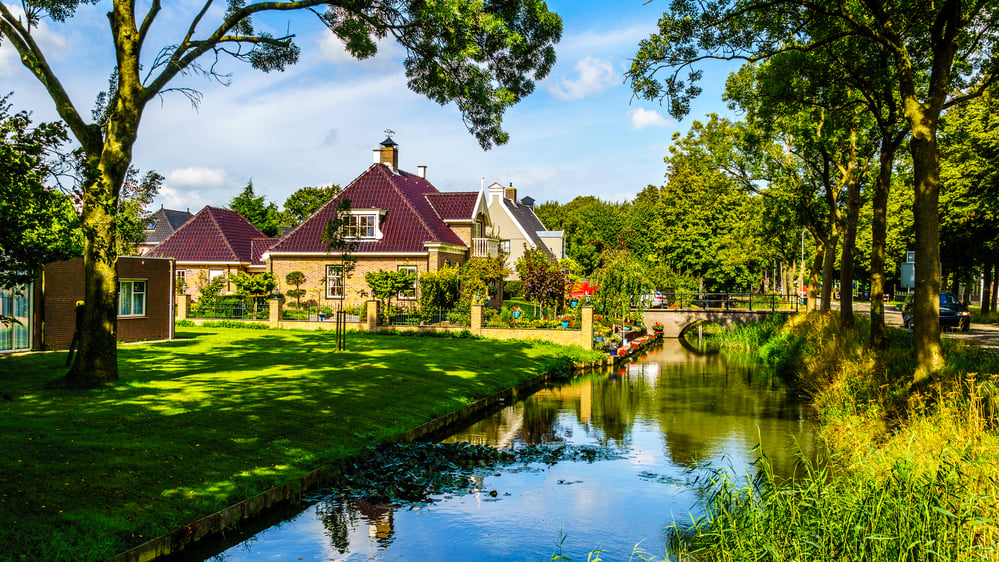
Middenbeemster, a little town in the countryside with horses, moats, a drawbridge, and a central market square, is sure to be a lovely summer outing.
You can get there using public transport from Amsterdam!
6. The architecturally unique Rietveld Schröder house
Rietveld Schröderhuis, located in Utrecht, is an outstanding piece of architecture designed in 1924 by Gerrit Rietveld.
READ MORE | Moving to Utrecht: everything you need to know about living in Utrecht in 2025
It was built at the request of Truus Schröder-Schräder, whose husband had recently died.
Schröder played an important role in the design process because she knew she wanted it to be simple, spacious, and free.
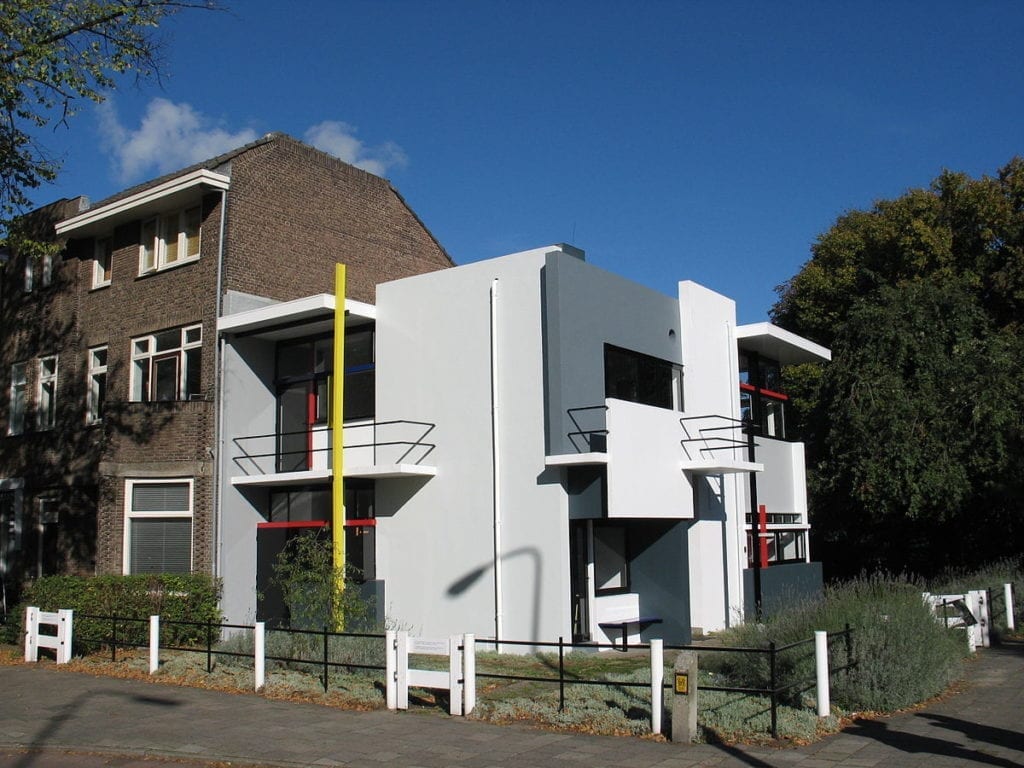
She asked for it to be designed without walls — not to constrain her or hide the truth of her emotional life with her three children.
She wanted fluidity and a connection between the inside and outside to mirror their new commitment to openness.
READ MORE | Mondriaan and Rietveld: Finding ‘De Stijl’ in Amersfoort
Mrs Schröder lived in the house until her death in 1985.
Bertus Mulder restored it and turned it into a museum where visitors can learn more about her life and the Dutch artistic movement De Stijl, of which the Rietveld Schröder House is an embodiment.
7. The natural Wadden Sea
The Wadden Sea is an intertidal zone of the North Sea, meaning that the area is above water at low tide and underwater at high tide.
READ MORE | Islands of the Netherlands: a guide to the Wadden Islands
Why is a ‘seashore’ on this list? It is one of the largest unbroken intertidal sand and mudflats systems in the world — and is ridiculously biologically diverse. 🔬
As well as all the plants and fishies, it’s home to the harbour seal, grey seal, and harbour porpoise.
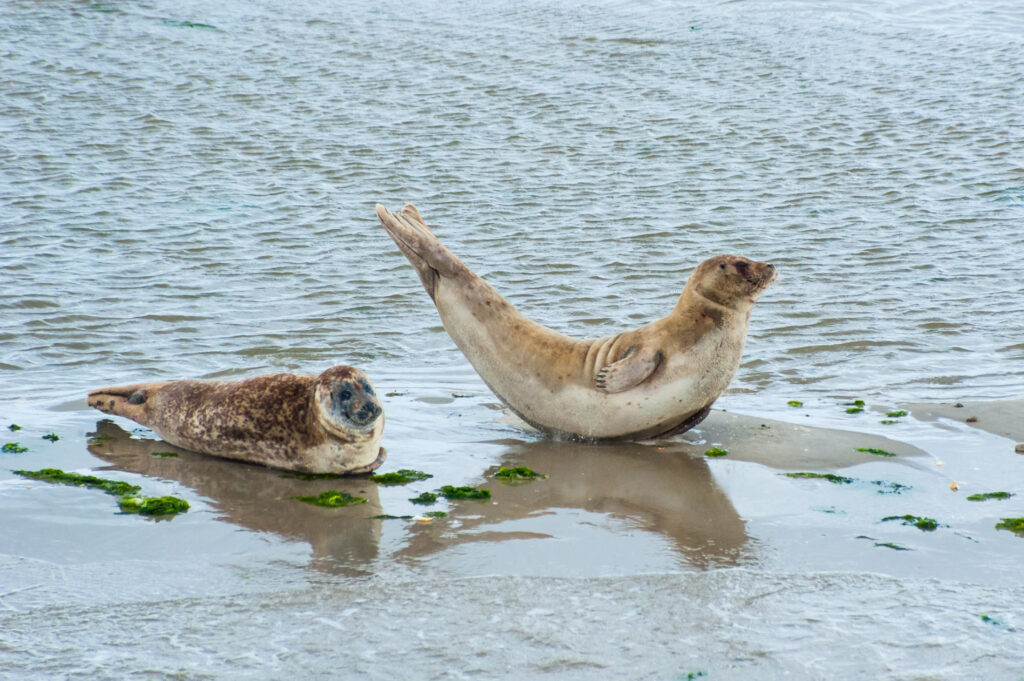
The Dutch part of the Waddenzee belongs to North Holland, Friesland, and Groningen.
It has tidal channels, sandy shoals, sea-grass meadows, mussel beds, sandbars, mudflats, salt marshes, estuaries, beaches, and dunes.
And what’s more, you can take a tour to walk on them!
8. The famous canals of Amsterdam
The beautiful and picturesque canals of Amsterdam are an unmissable site if you’re in the Netherlands.
When people talk about “the canals of Amsterdam“, they typically refer to the historical Canal Ring built in the 17th century.
The four main canals are Herengracht, Prinsengracht, Keizersgracht, and the Singel.
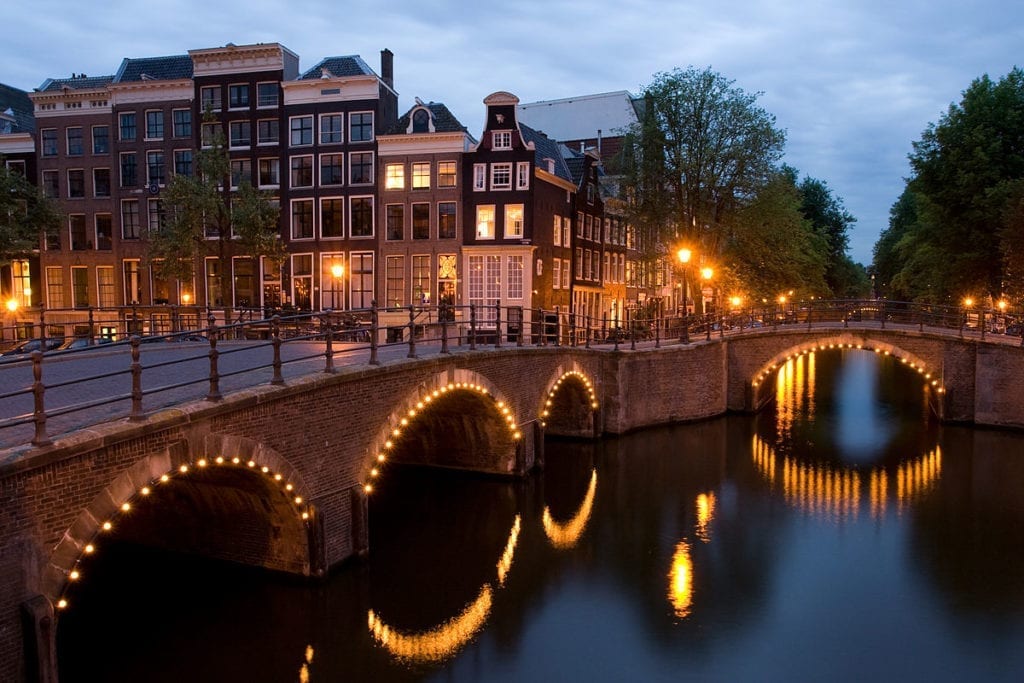
The surrounding areas form the Amsterdam Canal District (Grachtengordel). These canal belts eventually lead into the Amstel River.
READ MORE | Cruising Amsterdam’s canals is officially the top tourist experience (in the world!)
Why not experience this historical, cultural, and romantic part of the city by booking a boat?
From fancy culinary cruises to wading the waters with a paddleboard, there are plenty of ways to enjoy this World Heritage Site.
9. The interesting Van Nelle factory
Located on the Schie in Rotterdam is the former Van Nelle Factory (Van Nellefabriek).
The architecture of these buildings interestingly depicts a Russian Constructivist influence, and it is now a popular place for guided tours.
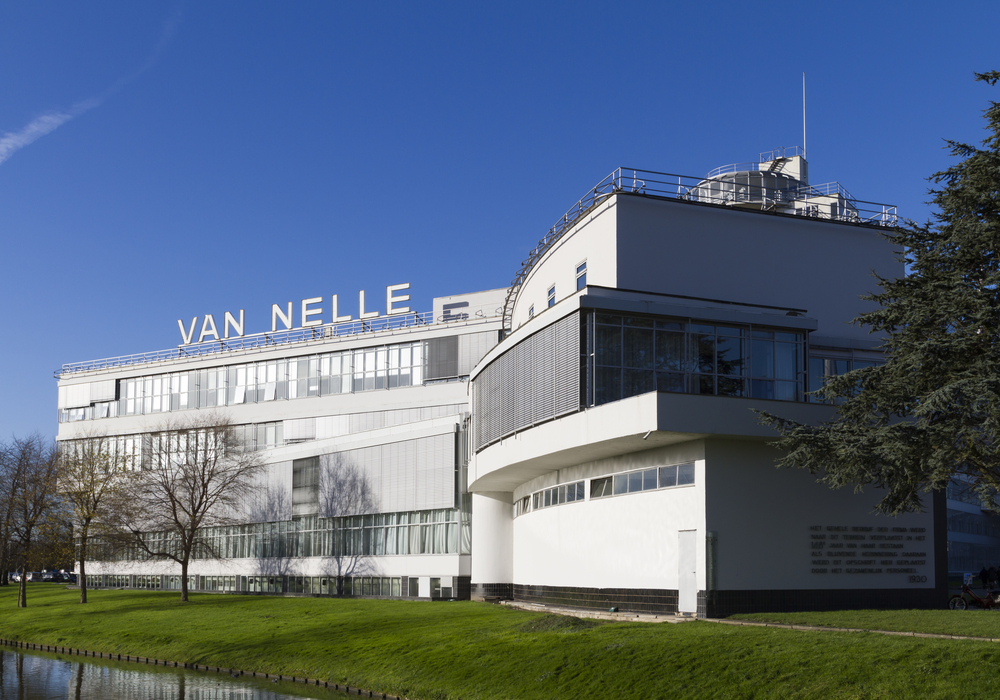
In 2015, the Van Nelle Factory topped the list of The 25 Most Beautiful Factories in the World.
Le Corbusier, one of the pioneers of modern architecture, said the building was “the most beautiful spectacle of the modern age” in 1932.
Before that, Howard Robertson declared it “a poem in steel and glass” in 1930.
10. The historical Colonies of Benevolence
Within the last few years, the Netherlands has gained some new World Heritage Sites.
Coming in at number 11 are the transnational Colonies of Benevolence.
There are three settlements in the Netherlands: Frederiksoord, Wilhelminaoord, and Veenhuizen in Drenthe, and Wortel in Belgium — just south of the Dutch border.
The government set up the colonies in 1818 to combat poverty among the population.
READ MORE | Colonies of Benevolence in the Netherlands added as a World Heritage Site (finally!)
Poverty-stricken families, beggars, and homeless people from the cities could go and work in the Colonies.
They were given their own homes and a section of land to learn to support themselves, and parents sent their children to school.
11. The New Dutch Water Defence Line
Remember the Defense Line of Amsterdam that we mentioned earlier?
Yup, the New Dutch Waterline is an extension of that. It’s the largest national monument and defence network in the Netherlands.
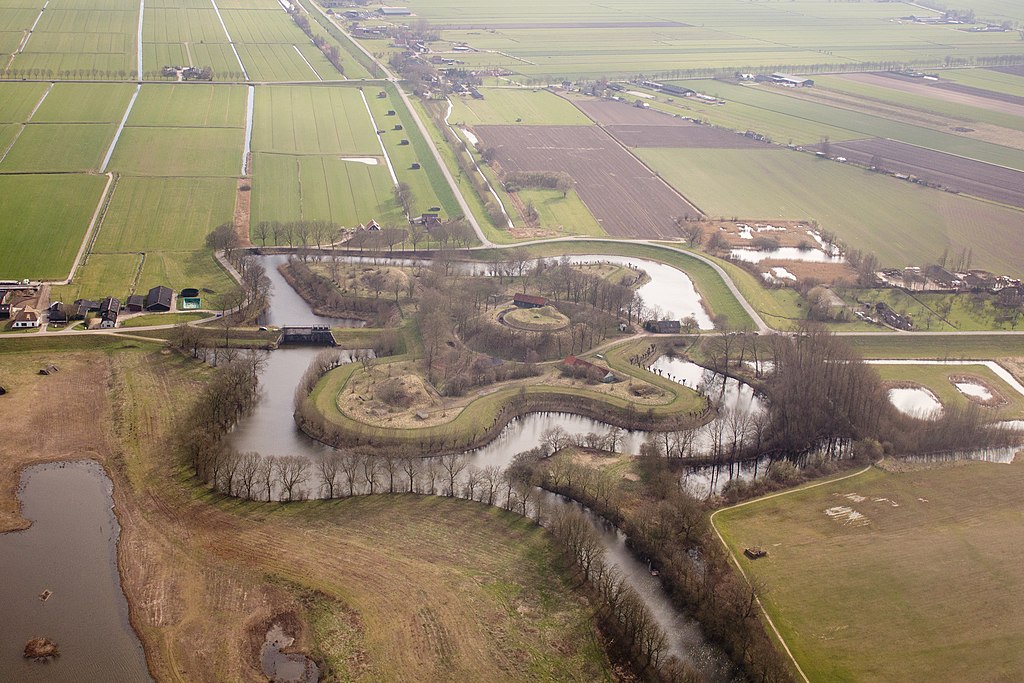
This historical line of defence, dating back to 1815, includes embankments, locks, canals, and bunkers.
They came together to form an ingenious system designed to protect the Netherlands from enemy troops during wartime.
READ MORE | Provinces in the Netherlands: the easy guide
The system was designed to flood large land areas if enemy troops quickly approached.
The line is 220 kilometres long and runs like a green ribbon through four provinces.
12. The Eise-Eisinga Planetarium
Last but certainly not least, we have our latest addition to the family of Dutch World Heritage Sites: The Eise-Eisinga Planetarium in Franeker, located in the province of Friesland.
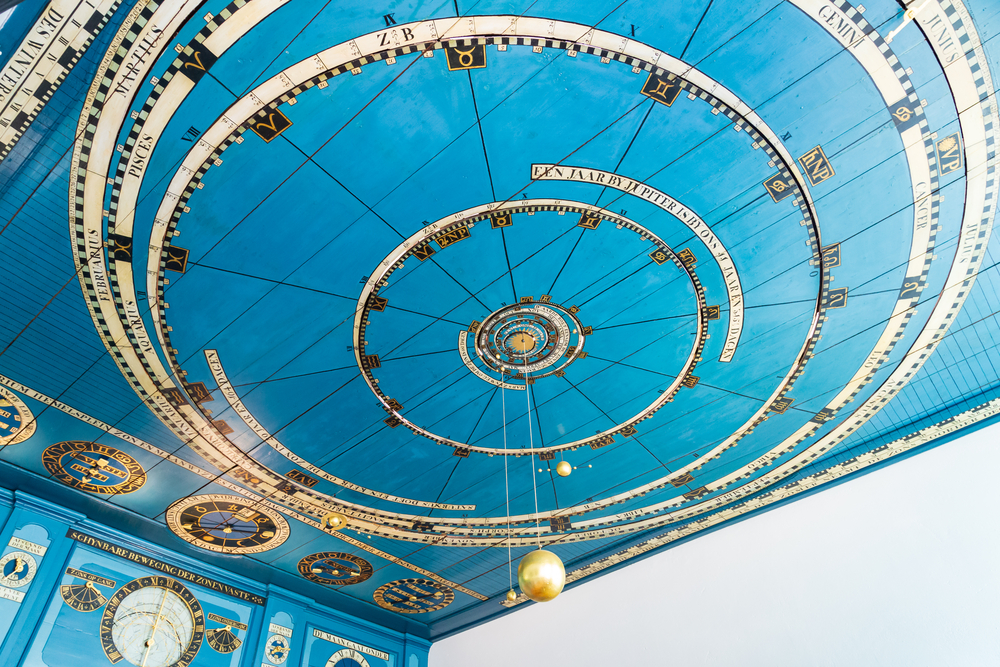
Thanks to the new inclusion of the Royal Eise-Eisinga Planetarium, the oldest functioning planetarium in the world, Friesland now contains four different cultural heritage sites (the Wouda steam pumping station, the Wadden Sea, and the Colonies of Benevolence).
The planetarium was invented by the talented amateur astronomer Eise Eisinga to prove that a prophecy about planets being on a collision course was wrong — and we’re definitely glad he was right.
Bonus: The picture-perfect town and harbour of Willemstad, Curaçao
Ok, in order to reach this World Heritage Site, you might need to take a few extra buses (and planes). Willemstad is a town on the Caribbean Island of Curaçao.
Yes, you read that right — if you didn’t already know, Curaçao is part of the Kingdom of the Netherlands! 😎
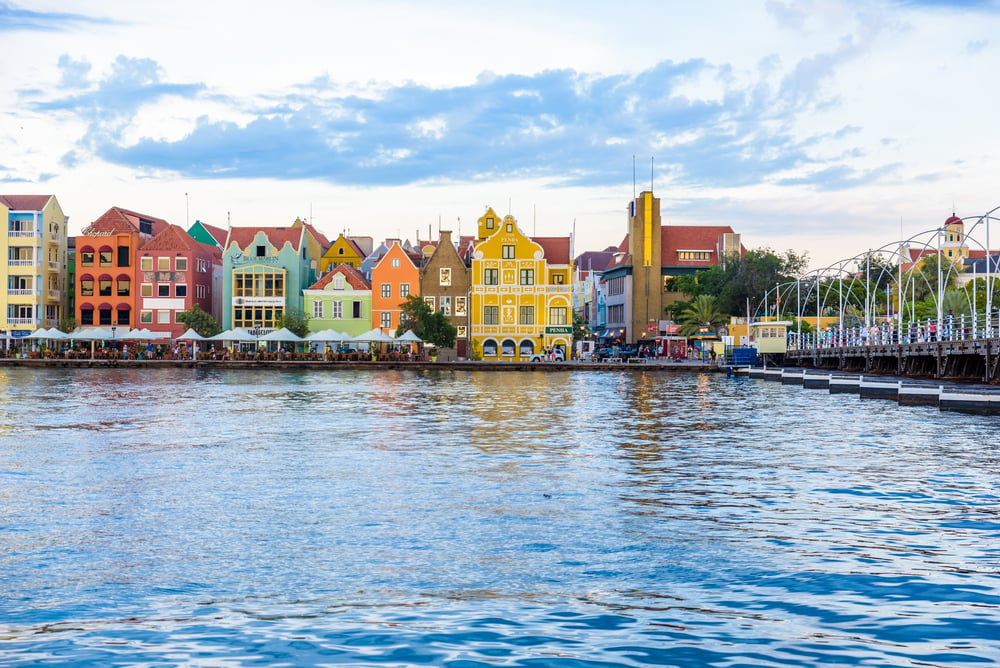
Willemstad, a uniquely cute and colourful port town, is where the Dutch established a trading settlement. The site has become a symbol of the growing multicultural community in the Netherlands.
READ MORE | Maps of the Netherlands: 9 maps to understand the Dutch landscape
The island was one of the epicentres of the slave trade, so you should also stop by the Kura Hulanda Museum, which talks about the history of the slave trade on Willemstad.
You can also walk around the sandy beaches and colourful streets full of street art and book tours to learn about the community’s culture and history.
The Netherlands has a rich history and beautiful sites to visit — take advantage of your time here and visit these historical places!
Which one of the World Heritage Sites in the Netherlands is your favourite? Tell us in the comments below!






Thank you for this article.
Learn for once an for all…. Holland AIN’T THE NETHERLANDS !!!
1 Schokland = FLEVOLAND ( NOT Hollland)
3 Willemstad = CURAÇAO ( NOT Holland
5 Lemmer = FRYSLÂN ( NOT Holland)
7 Utrecht = UTRECHT ( NOT Holland)
11 Frederiksoord= DRENTHE ( NOT Holland)
Curacao is not a municipality of the Netherlands. It’s an autonomous country in the Kingdom of the Netherlands. The kingdom consists of four countries the Netherlands, Curacao, St Maarten and Aruba.